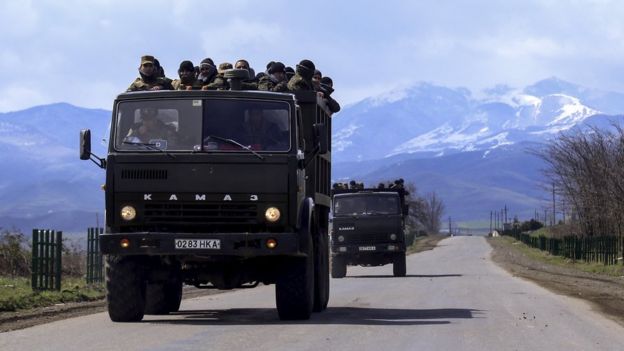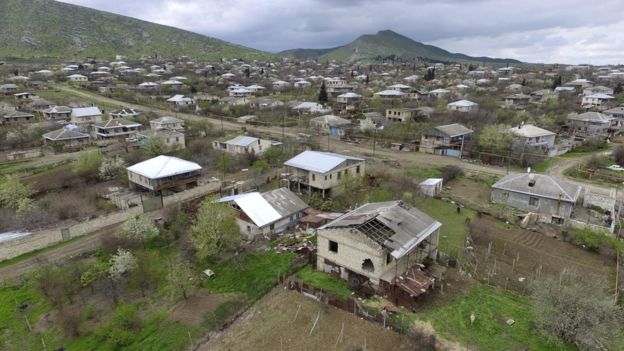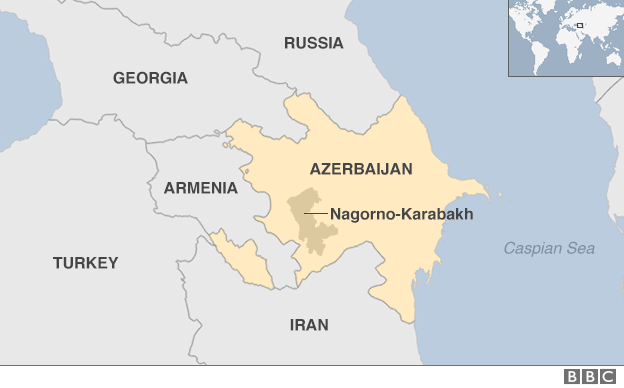Nagorno-Karabakh: Azeri-Armenian ceasefire agreed
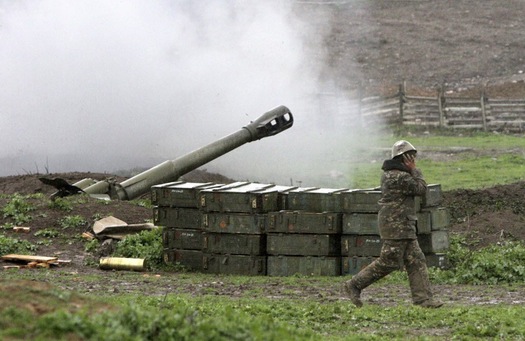
Azerbaijan and ethnic Armenian forces have agreed on an immediate ceasefire after nearly four days of fighting in the disputed Nagorno-Karabakh region.
The announcement came from the Armenian separatists and Azeri defence ministry.
Ethnic Armenians have controlled the mountainous enclave in Azerbaijan and adjacent territory since the 1990s.
Earlier Azerbaijan said 16 of its troops had died in two days of clashes. The Christian Armenians and mainly Muslim Azeris are longstanding rivals.
The separatists accuse Azerbaijan of using heavier weapons, including Smerch multiple rocket launchers.
Azerbaijan threatened a "major attack" on the region's capital, Stepanakert. The conflict — halted in 1994 — flared up again on Saturday.
Turkish Prime Minister Ahmet Davutoglu, quoted by Reuters news agency, said Ankara would continue to stand by Azerbaijan in the conflict.
The latest claims by the warring sides have not been independently verified.
Fighting escalated into full-scale war in 1991 as the Soviet Union collapsed, killing about 30,000 people before a ceasefire in 1994.
Nagorno-Karabakh has since run its own affairs with Armenian military and financial backing, but clashes break out on a regular basis.
Mediators from Russia, the US and France are expected to meet in Vienna on Tuesday under the auspices of the Organisation for Security and Co-operation in Europe (OSCE).
Years of mediation by the so-called OSCE Minsk Group have failed to defuse tensions in the southern Caucasus region.
Why does this conflict matter?
It has contributed to instability in Azerbaijan, a major oil and gas exporter in the region, and an estimated one million people were displaced by the war in the 1990s. About 30,000 people died in that war.
Russia has traditionally supported the Christian Armenians, while Turkey is an ally of Azerbaijan. Russia and Turkey are locked in a bitter dispute over the war in Syria.
It is a mountainous region of about 4,400 sq km (1,700 sq miles), though the separatist forces captured some extra territory around the enclave in Azerbaijan in the 1990s war.
What about the international impact?
Russian Foreign Minister Sergei Lavrov and US Secretary of State John Kerry have expressed serious concern and called on both sides to stop fighting.
The UN has expressed support for Azerbaijan's territorial integrity and demanded Armenian forces withdraw.
Azerbaijan's Defence Minister Zakir Hasanov said troops had been instructed to target Stepanakert if the separatists did "not stop shelling our settlements". The town is home to about 50,000 people.
The separatist forces promised a "crushing response" if that threat were carried out.
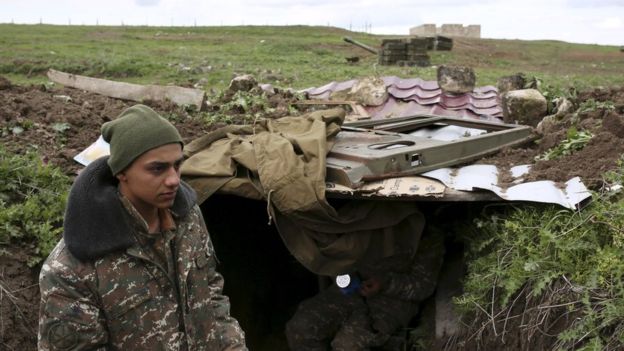
Armenia, which backs the separatists, earlier warned that the fighting could spark a large-scale war in the region.
President Serzh Sargysan said a renewed conflict would "affect security and stability not only in the South Caucasus, but Europe as well".
The Azeri defence ministry said Armenian separatist forces had continued to shell military positions and villages near the frontline despite a ceasefire declared unilaterally by Azerbaijan on Sunday.
The Armenian defence ministry reported that an Azeri drone had attacked a bus carrying Armenian "volunteers" to Martakert district, killing five people.
Hundreds of people from across Armenia have reportedly signed up in recent days to join the conflict.
A Nagorno-Karabakh military spokesman meanwhile said 20 Armenian troops had been killed since the fighting escalated on Saturday while 26 others were missing, the Mediamax news agency reports.
Политика конфиденциальности | Правила пользования сайтом
